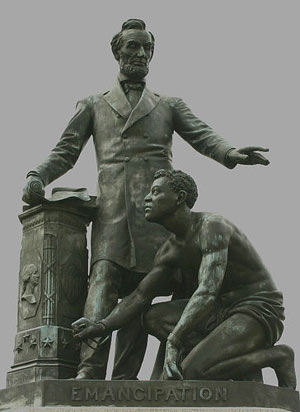 Most people know the London railway station Fenchurch Street because it was once important enough to be included on a Monopoly board. Today, and quite bizarrely, it’s the only railway terminus in Central London which isn’t directly connected to The Tube.
Most people know the London railway station Fenchurch Street because it was once important enough to be included on a Monopoly board. Today, and quite bizarrely, it’s the only railway terminus in Central London which isn’t directly connected to The Tube.
Fenchurch, for those who are not Douglas Adams fans, is also the name of the lady who “finally knew how the world could be made a good and happy place” but was sadly blown up (along with the Earth) to make room for an interspace bypass before she could tell anyone.
I have a certain sympathy with Fenchurch the lady. I know how CSR can be used to make the world a better and happier place, but my solution has nothing to do with profits or the creation of wealth.
Thankfully I’ve not yet been blown up to make way for a bypass, but the way business continues to ignore human rights (as opposed to social engagement) is self defeating, This is why a new law in California, the eighth largest economy in the world, makes such a huge difference.
An economic reality
Let’s get one thing sorted from the outset. California’s GDP is $1.9 trillion. That’s about the same as India or Italy, the same as the combined GDP of Australia and Indonesia, and it makes it the largest single contributor to the US’ overall GDP (13%).
Only two eurozone countries have a GDP greater than California: Germany and France. Italy is about the same. The UK’s economy is larger than California but the country is not, of course, a member of the eurozone.
So the business legislation California introduces must be paid attention to. Not just because it’s a driver of the US economy, but because it is a driver of the world economy in its own right.
This is where reality needs to kick in and businesses sit up and take note. If an economy the size of California is taking human rights seriously, it’s time the rest of the world did so as well.
No More Slavery
The definition of slavery has come a long way in the past few hundred years. It’s not just the possession of a person as an asset, which is the medieval view we still live with. Nor is it about having a captive labour force, which is the colonial spin which most European empires were built upon.
Slavery in the modern world is all about financial obligations. Many modern slaves are saddled with debts they simply cannot repay. In other words it’s an economic situation, and one which continues to underpin the West’s lifestyle.
As a hypothetical example, consider a person in the developing world who takes out a £500 loan to feed his or her family for the next 10 years. To repay their debt they agree to an interest rate of £1/month and a repayment of £2/month, plus the person will work for the lendee at the rate of 5p/hour until the debt is repaid.
It doesn’t take much to realise this person is taking out a debt which they have no realistic opportunity to pay off. What’s more, these debts are then bought and sold by employers (investments, futures, call them what you will) which reduces the person to nothing more than an asset whose debt can be (and IS) bought and sold on the open market.
The legal precedent
In short, what these impoverished and debt-saddled people produce is massively important to an end producer of refined goods, from clothing to mobile phones.
Into this California has thrown a new law: the Transparency in Supply Chains Act. That law requires that any company with $100m in worldwide sales and any connection to California must disclose what their supply chains are, whether they check them for slavery and what those checks are. It’s not disclose or explain .. it’s just straightforward disclose.
California’s not just a bunch of actors in Hollywood and a gaggle of techies in Silicon Valley. It’s also the eighth largest economy in the world. If they say jump most of the world jumps, whether we like it or not.
There is a little bit of wriggle room in the legislation for those companies who would prefer not to reveal such details. It’s that disclosure can either be on-demand, or through the company’s website.
This is a smart move by the Californian legislature. Very soon it will become obvious which companies are disclosing on their website, and which are waiting for freedom-of-information type requests to come in. In effect it creates a market, and that can be no bad thing in current economic circumstances.
Eradicating slavery may or may not have been in Fenchurch’s mind when she realised how the world could be made “a good and happy place”. I just hope we’ll find out how important personal debt-free freedom is before the bypass of economic necessity drives a bypass through all of our lives.
Photo Credit: Emancipation statue at Lincoln Park by dbking under CC attribution license
A former CTO, Chris has a broad and varied background. He’s been involved with blue chips, consultancies & SMEs across a wide variety of sectors and has worked in Europe, the Middle East and Australia.
In 2007 he decided to combine his knowledge of business and IT with his passion for all things sustainable and has been busy writing ever since. However, his greatest ambition remains to brew the perfect cup of coffee.